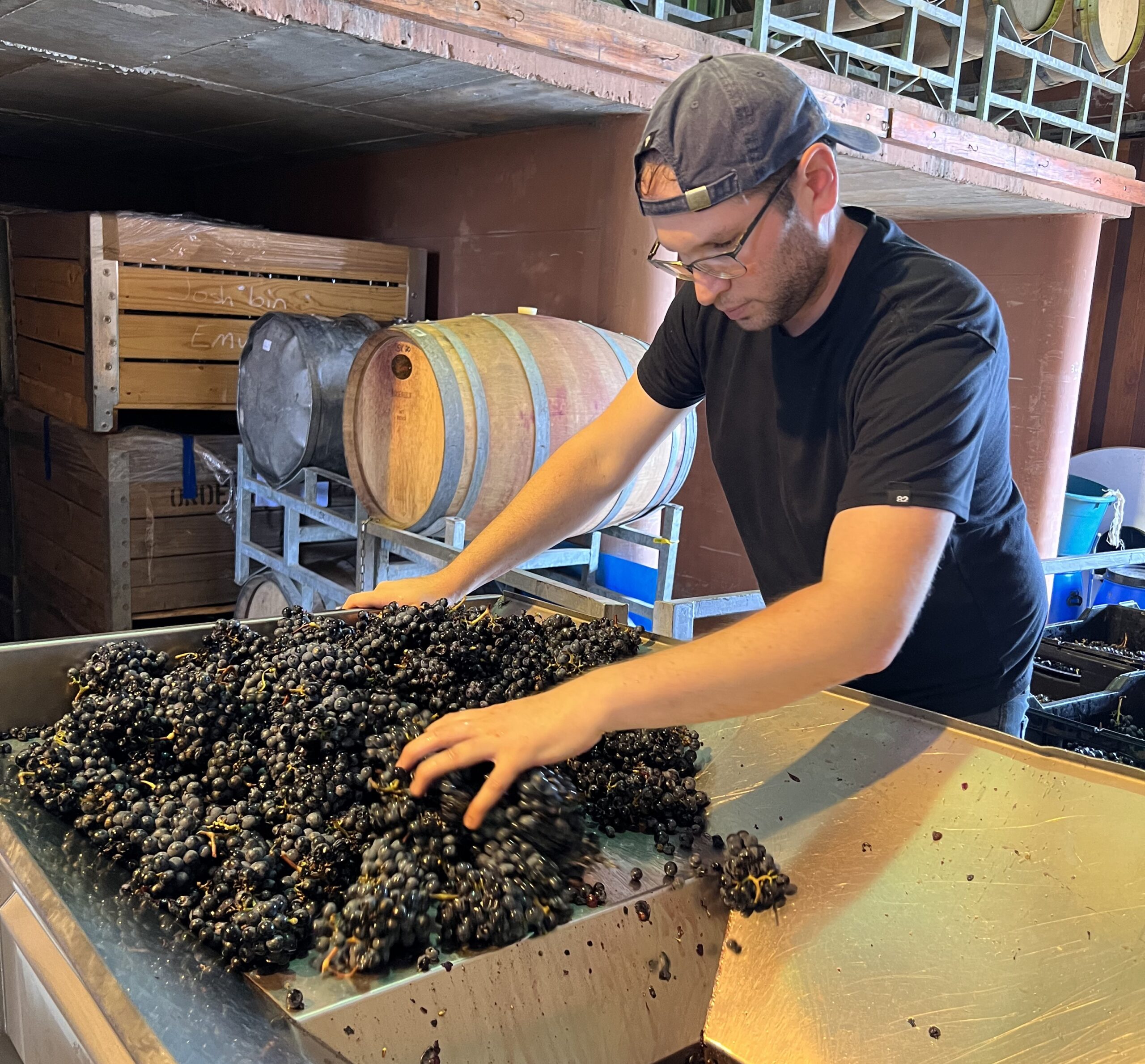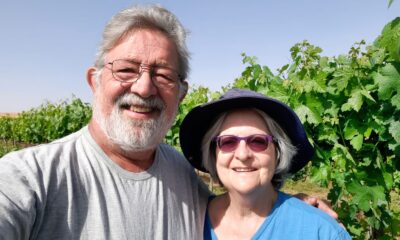
Featured Item

SA kosher wine grows up, gets noticed
Kosher wine has been subject to much criticism over the years, but with the rising number of kosher wines produced in and exported from South Africa, these beliefs are being steadily challenged.
In a Business Day feature on 5 February 2025, leading wine critic Michael Fridjhon gave five kosher wines from ESSA Wine Co. the highest scores in a blind taste test. Headlined “Kosher wines hold their own among SA peers”, the article detailed how ESSA wines stood out against their non-kosher contemporaries. As Fridjhon explained, this is a formidable feat considering that wine making even without Kashrut restrictions is a delicate science.
For wine to remain kosher when not exclusively handled by a mashgiach or a Shabbat observant Jew, the crushed grapes undergo a process known as flash pasteurisation, rendering them “mevushal”. Here they are heated to 85 degrees Celsius and then cooled down before fermentation. Wine connoisseurs say that this somewhat alters the taste of the wine although this is only apparent to the most discerning of palates. However, innovations in kosher winemaking are reportedly minimising this process’s impact on the wine’s flavour profile. Wine that is served at weddings and functions has to be mevushal.
As they operate on a small scale, ESSA makes high-end, non-mevushal wines. American-born, Western Cape based winemaker, Joshua Rynderman, the owner and winemaker at ESSA, says his winemaking journey began in an unexpected way. Seated next to renowned kosher winemaker, Benyamin Cantz of Four Gates Winery in California’s Santa Cruz Mountains at a Sukkot celebration in 2014, Rynderman found himself offering to assist in his winery. A psychology student at the time, Rynderman was intrigued by his wine discussion with Cantz, but otherwise knew absolutely nothing about wine.
“That innocent offer of assistance turned into an eight-year apprenticeship,” he says. “I learned the craft from the ground up. I observed Benyamin’s use of old-world techniques and his commitment to quality above all else – now the foundation of my winemaking philosophy.”
Later meeting his wife, Chana, in Johannesburg in 2017, Rynderman soon proposed, and the couple decided to settle in Cape Town. “I had a vision of bringing high-quality South African kosher wines to the market,” Rynderman recalls. “Just weeks after our wedding in January 2018, we were harvesting dry-farmed Malbec and Cabernet Franc from the Hemel-en-Aarde Ridge.”
Their business, ESSA Wine Co., at Onderkloof Wine Estate in Somerset West has grown from its first vintage, which yielded just two tonnes, to producing 17 tonnes in 2023. Nevertheless, they remain focused on crafting exceptional wines rather than exclusively increasing volume.
“Chana and I set out to change the landscape of kosher wine in South Africa and we’ve been able to achieve that by working together,” Rynderman says. “Chana is in control of the company, its finances, as well as the design work. She’s a talented artist who creates our iconic labels.” Rynderman, who in meeting kosher winemaking requirements keeps Shabbat, works alongside the mashgiach to produce the wines.
He points out that there is a far greater variety of quality kosher wines available today than ever before.
“Jewish winemakers like me strive to bring great wines to those who gravitate towards quality,” Rynderman says. “We’re working to combat the perception that kosher wines are inferior or mass-produced by offering something truly distinctive. We do this by producing wines that capture the unique characteristics of the South African landscape and that can proudly stand alongside the finest wines in the world.” With ESSA recently named Kosher Winery of the Year for 2024 in American blog, Kosher Wine Musings, it’s clear that this strategy is working.
For Simon Back, the director of Backsberg Family Wines, wine has always been a family affair. It all started with his great-grandfather, Charles Back, who came to South Africa from Lithuania in 1902 in search of a better life. After working in the docks and later in butcheries, he ultimately bought a butchery in Paarl.
“In 1916, someone came into the shop and asked if he wanted to buy a piece of land,” says Back. “He jumped at the opportunity.” And so, drawing on the area’s rich history of wine making and viticulture, he went into the wine business.
“My great-grandfather was a doyen of the more modern South African wine industry,” says Back. “My father also was something of a pioneer, specifically around his sustainability work – Backsberg was the first carbon neutral winery in South Africa.” Backsberg has accumulated numerous winemaking accolades over the years, with Back himself instrumental in driving Backsberg’s wine exports.
Backsberg began producing kosher wines in the early 2000s, Back recalls. It was the company’s United States (US) importers who at the time pointed out the growing kosher wine market in the US and suggested that as a Jewish-owned winemaker, Backsberg should explore this market. They began producing and shipping kosher wine to the US, and it grew from there. “Now we’ve got two kosher ranges, Sydney Back kosher wine and Unorthodox,” Back says. While their kosher market is primarily international, the brands do have a small but meaningful footprint in the local kosher wine space.
Three years ago, Backsberg sold a majority stake in the wine business to Douglas Green Bellingham (DGB), which continues to produce the farm’s kosher wines. Back remains actively involved on a strategic level as a director. “It’s part of my identity and part of my family’s legacy so to me, it’s important to work with DGB to see the brand progress and flourish into the future,” he says.
Wayne Sussman, the co-creator of the Unorthodox brand, serves as a consultant for DGB. He says Unorthodox is unapologetically kosher, calling it a wine deeply enmeshed in Jewish identity. While he acknowledges past negative sentiment around kosher wine, he says that with increased competition in the South African wine making space, this is rapidly diminishing.
He welcomes this growing competition. “You’ve got new people, talented winemakers making kosher wine in small quantities who are selling out,” he says. “It’s exciting.”







yitzchak
March 28, 2025 at 9:09 am
Jewish guy at a restaurant “Whining and Dining”asks his date:(from Kugel Country/JAP borough)
“What whine do you want?”
Responding she plaints tearfully” I want a Mercedes”